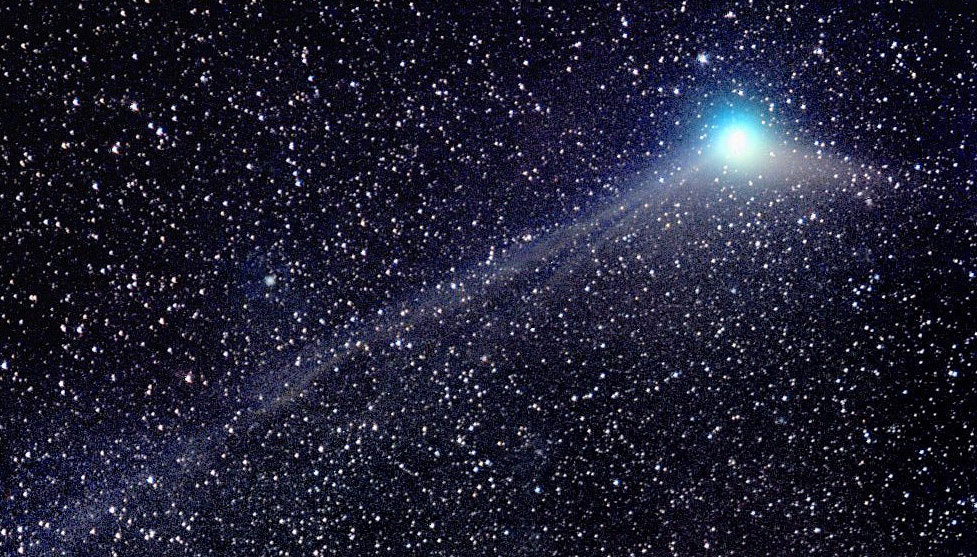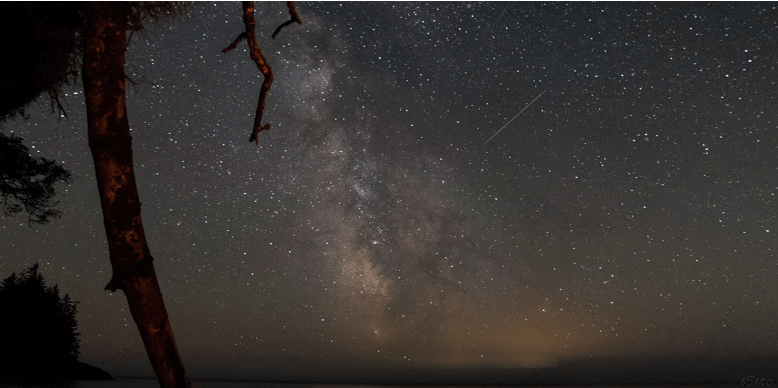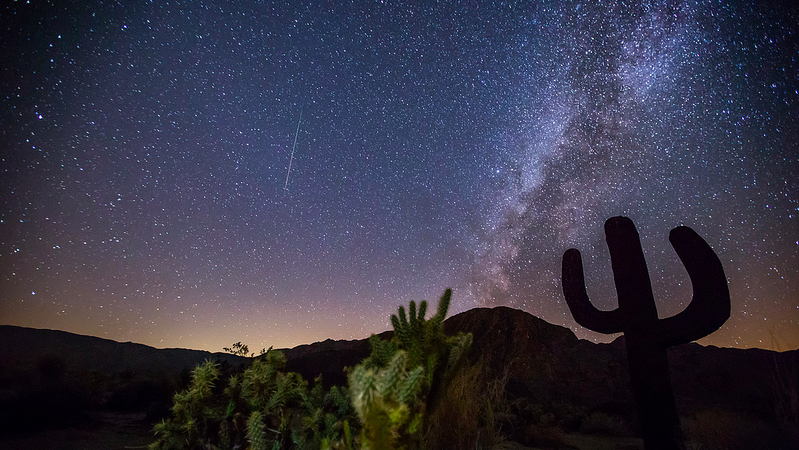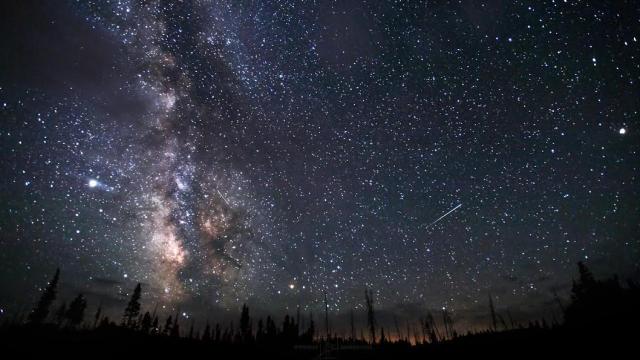The Delta Aquarid meteor shower has begun and it’s a reliably good show that you shouldn’t miss. Here’s how, when and where to watch.
2008 Delta Aquarids (Image: Jeff Berkes of Jeff Berkes Photography)
Some meteor showers are prone to either feast or famine, raining down hundreds of meteors one year, only to slow to a trickle the next. Not the Delta Aquarids. This is a steady shower that reliably produces an average of 10-20 meteors per hour.
In general, the best viewing for the Delta Aquarids is found in the southern hemisphere, which is good news for Australia.
The meteors are on the smallish side of average and come in at a moderate speed of about 148,000km per hour. That means that, while you should see some bright and lovely trails, splashy fireballs are unlikely.
While the Aquarids may sound like a relatively average shower, there are some unusual aspects to it. The oddest is that scientists aren’t quite sure where it comes from.

Comet 96 P Machholz (Image: US Naval Research Laboratory)
Meteor showers are formed when debris from a comet (or more rarely, an asteroid) passes through our atmosphere and burns up. Most of the time, tracing the comet isn’t difficult at all. But the Delta Aquarids source is a subject of continued debate.
Researchers have identified some very probable candidates. Slooh Observatory believes the shower is likely due to a comet — Comet 96/P Machholz — discovered 30 years ago by one of their astronomers. NASA, however, attributes the shower to two neighbouring (and possibly related) sungrazing comets, Comets Marsden and Kracht.
But, although the Delta Aquarids have been raining down meteors annually since the 1870s, researchers haven’t been able to definitely confirm which comet (or which combination of them) is the shower’s main source.
So, How Do I Watch?
Astronomers also disagree on which is the very best night to see the shower. Slooh Observatory called last night the most likely peak, while NASA astronomer Bill Cooke suggested to Gizmodo that tonight would be even better. All this means is that you have an even longer than usual range in which to catch the shower.
Whichever night you pick, the protocol is largely the same. The best viewing hours should be between 1:00AM to 3:00AM. With our old enemy the Moon safely waning, we should have an excellent backdrop of dark skies.

Delta Aquarids (Image: Eileen Seto Photography)
Bring a blanket to lay out or a lawn chair (make sure it reclines or you’re going to spend the whole night craning your neck), and another one to wrap around yourself. A star chart (or app, if you prefer), snacks and a flask should complete your kit. With the Delta Aquarids’ relatively tiny meteors, you want a long-range view to scan the skies, so binoculars or telescopes are better left behind.
A good place to start looking is the radiant, which for this shower is just below the constellation Aquarius. But that’s really just for reference, you want to be able to see the whole sky, so focus more on finding an unobstructed view than on watching the radiant.
Although the overall number of meteors that show up for observation — 10-20 per hour — is relatively modest, the amount of debris is actually much greater. Most of it, however, is so tiny that it burns up unseen. If you’re watching from radar, however, the show suddenly becomes an extravaganza which can dwarf much larger showers.
“The shower is rich in small particles, which do not produce enough light to be easily seen as they ablate (“burn up”),” Bill Cooke of NASA’s Meteoroid Environments Office told Gizmodo. “However, the radars are able to pick up the ionisation trails left behind by these little guys, even if they don’t put on much of a show to the visual observer.”
You can listen in on the meteor echoes from at least one radar right here, or if you prefer to watch online, Slooh also recorded a livefeed last night. The very best way to view, though, is as always to get outside and just look up.

Delta Aquarids (Image: Jeff Morris)
